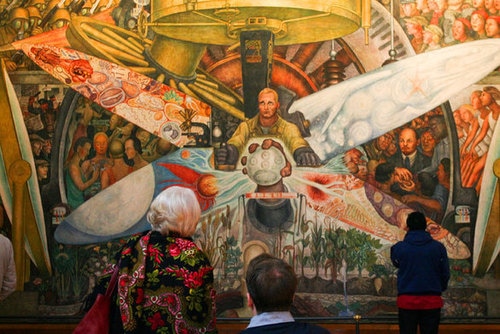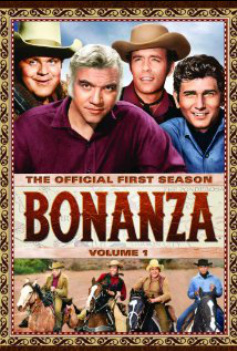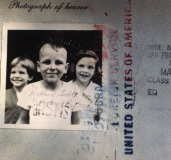Dad, read this one!” We deliver his beloved Modern American Poetry opened to “I Paint What I See.” Dad’s book is a gold mine for our annual Declamation Contests at school. We all have to recite a poem in front of the class and the best person competes with a full school. This year, Scott chooses “O Captain my Captain!” about Abraham Lincoln. I turn to Vanzetti’s last speech in the trial of Sacco and Vanzetti, shoe salesman, fish peddler, tried because they were anarchists says dad, and though he shakes his head, sadly, he doesn’t explain what an anarchist is. When they are sentenced to the electric chair, Venzetti says, “I can live by my two hands and live well.” It would be good for declamation, but my voice chokes when I try to read it aloud.
We’ve heard of class struggle, church and labor, squatters out in Sapang Palay and Carmona. But we've only visited factories as a fieldtrip. I've memorized most of his Songs of Labor album: “we shall not, we shall not be moved!” We sing the lyrics like a dance song. I want to be a radical, I really do.
I’m careful not to lose the two yellowing inserts tucked into the binding as I hand the book to him. The short poem is my favorite. I slip it out and carefully unfold the yellowing slip of paper to read the faded type, even though I have it memorized:
The golf links lie so near the mill
That almost every day
The laboring children can look out
And see the men at play.
Dad sees me, “Kerry, put it back now.”
“Ok, Ok.” Cupping the rust colored hardback in his splayed left hand, he sticks the refolded poem between two thick pages, clears his throat, lifts his right arm to pause the air, and looks up to ask,
"'What do you paint, when you paint on a wall?'
Said John D.'s grandson Nelson,
Dad's cadence rises and falls with the verses,
Do you paint just anything there at all? '
Will there be any doves, or a tree in fall?
'Or a hunting scene, like an English hall?'
and calls us to the chorus -
'I paint what I see,' said Rivera.
He laughs. Johanna gives a happy giggle. He takes us along with elocutionary élan,
….Whose is that head that I see on the wall?'
Said John D.'s grandson Nelson.
'Is it anyone's head whom we know, at all?
'A Rensselaer, or a Saltonstall?
'Is it Franklin D.? Is it Mordaunt Hall?
“Or is it the head of a Russian!” Johanna shouts, she can’t wait.
Mom comes out from the Airconditioned Room to listen, smiling with her arms folded. Dad delivers Rivera as one born to the tenements of the upper East Side.
'And the thing that is dearest in life to me
'In a bourgeois hall is Integrity;
'However . . .
'I'll take out a couple of people drinkin'
'And put in a picture of Abraham Lincoln;
'I could even give you McCormick's reaper
'And still not make my art much cheaper.
The New Yorker pauses, eyes wide with meaning, voice rising, pointing to the sky…
'But the head of Lenin has got to stay..
'Or my friends will give the boid today,
'The boid, the boid, fohevah.'
And we chortle along through John D.’s feeble resistance…
'And after all,
'It's my wall . . .'
Ending in unison:
'We'll see if it is,' said Rivera.
**
In 1964, Dad’s father, the only true blue collar laborer in our family, dies. Dad learns this from a telegram. Aunt Erna sends an airform letter, typed entirely in CAPS as though she's shouting. His eyes redden, his throat gets caught. But he doesn't cry in front of us. Somewhere he cries, maybe. We're very far away from everything that matters, sometimes.
We’ve heard of class struggle, church and labor, squatters out in Sapang Palay and Carmona. But we've only visited factories as a fieldtrip. I've memorized most of his Songs of Labor album: “we shall not, we shall not be moved!” We sing the lyrics like a dance song. I want to be a radical, I really do.
I’m careful not to lose the two yellowing inserts tucked into the binding as I hand the book to him. The short poem is my favorite. I slip it out and carefully unfold the yellowing slip of paper to read the faded type, even though I have it memorized:
The golf links lie so near the mill
That almost every day
The laboring children can look out
And see the men at play.
Dad sees me, “Kerry, put it back now.”
“Ok, Ok.” Cupping the rust colored hardback in his splayed left hand, he sticks the refolded poem between two thick pages, clears his throat, lifts his right arm to pause the air, and looks up to ask,
"'What do you paint, when you paint on a wall?'
Said John D.'s grandson Nelson,
Dad's cadence rises and falls with the verses,
Do you paint just anything there at all? '
Will there be any doves, or a tree in fall?
'Or a hunting scene, like an English hall?'
and calls us to the chorus -
'I paint what I see,' said Rivera.
He laughs. Johanna gives a happy giggle. He takes us along with elocutionary élan,
….Whose is that head that I see on the wall?'
Said John D.'s grandson Nelson.
'Is it anyone's head whom we know, at all?
'A Rensselaer, or a Saltonstall?
'Is it Franklin D.? Is it Mordaunt Hall?
“Or is it the head of a Russian!” Johanna shouts, she can’t wait.
Mom comes out from the Airconditioned Room to listen, smiling with her arms folded. Dad delivers Rivera as one born to the tenements of the upper East Side.
'And the thing that is dearest in life to me
'In a bourgeois hall is Integrity;
'However . . .
'I'll take out a couple of people drinkin'
'And put in a picture of Abraham Lincoln;
'I could even give you McCormick's reaper
'And still not make my art much cheaper.
The New Yorker pauses, eyes wide with meaning, voice rising, pointing to the sky…
'But the head of Lenin has got to stay..
'Or my friends will give the boid today,
'The boid, the boid, fohevah.'
And we chortle along through John D.’s feeble resistance…
'And after all,
'It's my wall . . .'
Ending in unison:
'We'll see if it is,' said Rivera.
**
In 1964, Dad’s father, the only true blue collar laborer in our family, dies. Dad learns this from a telegram. Aunt Erna sends an airform letter, typed entirely in CAPS as though she's shouting. His eyes redden, his throat gets caught. But he doesn't cry in front of us. Somewhere he cries, maybe. We're very far away from everything that matters, sometimes.




 RSS Feed
RSS Feed
